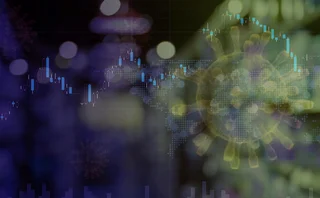
Japan’s nuclear woes alter dynamics for Asian commodity derivatives
The Japanese economy is tipped to stage a ‘V-shaped’ recovery from the effects of the worst earthquake in its modern history, with dealers expecting regional commodity markets to rise in the third quarter. While the initial impact of the shock has since been subsumed by ongoing turmoil in the Middle East and Africa, Japan’s nuclear crisis has the potential to re-shape regional energy derivatives markets.

Trading on the Tokyo Commodities Exchange (Tocom) doubled as investors scrambled to close positions while the Tohku earthquake and tsunami devastated large parts of northeastern Japan’s economic infrastructure.
Mitsuhiro Onosata, executive officer for corporate planning and global business development with Tocom says on March 11 – the day the earthquake struck – trading volume on the exchange jumped by 40,000 contracts, or 35%, from 113,856 to 154,160 and continued to rise to a high of 220,525
Only users who have a paid subscription or are part of a corporate subscription are able to print or copy content.
To access these options, along with all other subscription benefits, please contact info@risk.net or view our subscription options here: http://subscriptions.risk.net/subscribe
You are currently unable to print this content. Please contact info@risk.net to find out more.
You are currently unable to copy this content. Please contact info@risk.net to find out more.
Copyright Infopro Digital Limited. All rights reserved.
You may share this content using our article tools. Printing this content is for the sole use of the Authorised User (named subscriber), as outlined in our terms and conditions - https://www.infopro-insight.com/terms-conditions/insight-subscriptions/
If you would like to purchase additional rights please email info@risk.net
Copyright Infopro Digital Limited. All rights reserved.
You may share this content using our article tools. Copying this content is for the sole use of the Authorised User (named subscriber), as outlined in our terms and conditions - https://www.infopro-insight.com/terms-conditions/insight-subscriptions/
If you would like to purchase additional rights please email info@risk.net
More on Energy
Energy Risk Commodity Rankings 2024: markets buffeted by geopolitics and economic woes
Winners of the 2024 Commodity Rankings steeled clients to navigate competing forces
Chartis Energy50
The latest iteration of Chartis’ Energy50 ranking
Energy trade surveillance solutions 2023: market and vendor landscape
The market for energy trading surveillance solutions, though small, is expanding as specialist vendors emerge, catering to diverse geographies and market specifics. These vendors, which originate from various sectors, contribute further to the market’s…
Achieving net zero with carbon offsets: best practices and what to avoid
A survey by Risk.net and ION Commodities found that firms are wary of using carbon offsets in their net-zero strategies. While this is understandable, given the reputational risk of many offset projects, it is likely to be extremely difficult and more…
Chartis Energy50 2023
The latest iteration of Chartis' Energy50 2023 ranking and report considers the key issues in today’s energy space, and assesses the vendors operating within it
ION Commodities: spotlight on risk management trends
Energy Risk Software Rankings and awards winner’s interview: ION Commodities
Lacima’s models stand the test of major risk events
Lacima’s consistent approach between trading and risk has allowed it to dominate the enterprise risk software analytics and metrics categories for nearly a decade
2021 brings big changes to the carbon market landscape
ZE PowerGroup Inc. explores how newly launched emissions trading systems, recently established task forces, upcoming initiatives and the new US President, Joe Biden, and his administration can further the drive towards tackling the climate crisis
Most read
- Top 10 operational risks for 2024
- The American way: a stress-test substitute for Basel’s IRRBB?
- Hidden Road ready for rush hour after FCM approval








